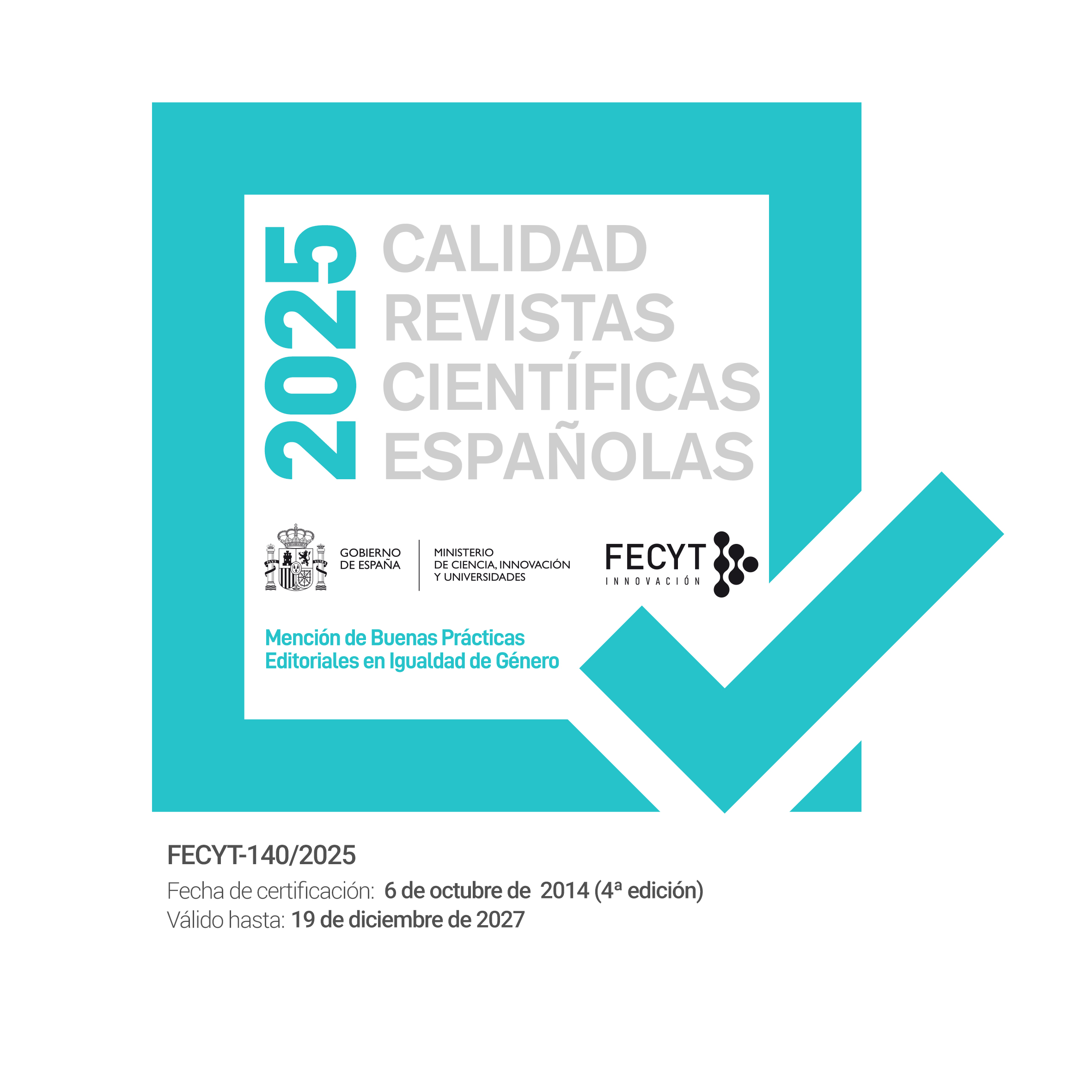Smartphones: reading habits and overuse. A qualitative study in Denmark, Lithuania and Spain
DOI:
https://doi.org/10.5944/educxx1.28321Palabras clave:
Reading, smartphones, mobile technology, digital literacy, hypertextResumen
Recently, the smartphone has become the key device in families and
workplaces, changing people’s habits and ways of interaction in our liquid
and hyperconnected societies. Little research has been done on the use
of smartphones for reading, since the telephone was not associated with
reading until very recently. This paper presents an overview of digital mobile
reading in the digital literacy context and tries to answer different research
questions, such as: how do people read on the smartphone? Do people have
an addiction to/misuse of mobiles? Its objective is to offer empirical data
about people’s experiences of digital mobile reading and to analyse how we
depend on our smartphone through a small-scale qualitative study including
different informants from three European capital cities: Copenhagen
(Denmark), Madrid (Spain) and Vilnius (Lithuania).
The paper does not aim to generalise its findings, but to advance the field of digital literacy research, a field in which the meaning (the interviews) has been interpreted in relation to a wider socio-cultural context.
The results report that the “context”, the “time” and the “situation” where
reading is carried out are decisive for understanding; furthermore, the type
of navigation that readers can perform on the smartphone has important
consequences in the reading process, hence, the layout must be well designed
for active and attentive users on mobile devices. Our Informants assert that
situations like boredom, waiting or loneliness can induce the use of the
smartphone. Therefore, more research is needed, in different areas and with
new digital literacy programmes in order to help young people (and adults)
use their mobiles as advantageously as possible.
Descargas
Citas
Afflerbach, P., & Cho, B. (2009). Determining and describing reading strategies: Internet and traditional forms of reading. In H.S. Waters & W. Schneider, Metacognition, strategy use, and instruction (pp. 201-225). Guilford Press.
Balling, G., Begnum, A., C Kuzmičová, A., & Schilhab, T. (2019). The young read in new places, the older read on new devices: A survey of digital reading practices among librarians and Information Science students in Denmark. Participations, Journal of Audience & Reception Studies, 16(1), 197-236.
Bauman, Z. (2012). On education. Polity.
Brinkmann, S. (2013). Qualitative interviewing. Oxford University Press.
Carr, N. (2018). The shallows: What the Internet is doing to our brains. W.W. Norton &Company.
Canclini, G. N. (1990). Hybrid cultures. Strategies for entering and leaving modernity. Grijalbo.
Castells, M. (2004). La sociedad red: una visión global. Alianza.
Cavallo, G., & Chartier, R. (2011). History reading of the occidental world. Taurus.
Chakraborty, M. D. (2017). Facebook Addiction: An Emerging Problem. The American journal of Psychiatry, 11(12), 7-9.
Cho, B.Y. (2014). Competent adolescent readers’ use of Internet reading strategies: A think-aloud study. Cognition and Instruction, 32, 252-289.
Delgado, P., Vargasb, C., Ackermans, R., & Salmerón, L. (2018). Don’t throw away your printed books: A meta-analysis on the effects of reading media on reading comprehension. Educational Research Review, 25, 23-38 https://doi.org/10.1016/j. edurev.2018.09.003
Ditrendia (2019). Informe Mobile en España y en Mundo 2019. https://cutt. ly/JzbfwAG
Downes, S. (2010). New technology supporting informal learning. Journal of Emerging Technologies in Web Intelligence, 2(1), 27-33.
Hooper, V., & Zhou, Y. (2007). Addictive, dependent, compulsive? A study of mobile phone usage. BLED 2007 Proceedings, 38. https://cutt.ly/0fJHXpZ
Ito, M. (2005). Mobile phones, Japanese youth, and the re-placement of social contact. In R. Ling & P. Pedersen (Eds.), Mobile communications: Re- negotiation of the social sphere (pp. 131-148). Springer.
Jeong, S. H., Kim. H., Yum, J. Y., & Hwang, Y. (2016). What type of content are smartphone users addicted to? SNS vs. games. Computers in Human Behavior, 54, 10-17. https:// doi.org/10.1016/j.chb.2015.07.035
Lauterman, T., & Ackerman, R. (2014). Overcoming screen inferiority in learning and calibration. Computers in Human Behavior, 35, 455-463. https:// doi.org/10.1016/j.chb.2014.02.046
Lee, A. (2018) Physical and digital reading habits of adult Singaporeans, Journal of Library Administration, 58(6), 629-643. https://doi.org/10.1080/01930826.2018.1491189
Leu, D.J., Forzani, E., Rhoads, C., Maykel, C., Kennedy, C., & Timbrell,
N. (2015). The new literacies of online research and comprehension:
Rethinking the reading achievement gap. Reading Research Quarterly, 50, 37-59. https://doi.org/10.1002/rrq.85
Mangen, A., & Schillhab, Y. (2012). An embodied view of reading: Theoretical considerations, empirical findings, and educational implications. In S, Matre & A. Skaftun (Eds.), Skriv! Les! Akademika forlag
Mangen, A., & Van Dick, A. (2016). The evolution of reading in the age of digitisation: an integrative framework for reading research. Literacy, 50(3), 116-124. https://doi.org/10.1111/ lit.12086
Markey, P. M., & Ferguson, C. J. (2017). Internet Gaming Addiction: Disorder or Moral Panic? The American Journal of Psychiatry, 173(3), 195-196. https://doi.org/10.1176/appi.ajp.2016.16121341
Mobile phones becoming a major addiction (2003). https://cutt.ly/ lfHf6Uf
Morozov, E. (2012). The disappointment of the Internet: The myths of freedom on the web. Imago Mundi.
Oulasvirta, A., Rattenbury, T., & Raita, E. (2012). Habits make smartphone use more pervasive. Personal and Ubiquitous Computing, 16(1), 105– 114.
Panova, T., & Carbonell, X. (2018). Is smartphone addiction really an addiction? Journal of Behavioral Addictions, 7(2), 252-259. https://doi. org/10.1556/2006.7.2018.49
Schilhab, T., Balling, G., & Kuzmicova, A. (2018) Decreasing materiality from print to screen reading. First Monday, 23(10). https://doi.org/10.5210/ fm.v23i10.9435
Siemens, G. (2005). Connectivism: A learning theory for the digital age. International Journal of Instructional Technology and Distance Learning, 2(1), 3-10. http://www.itdl.org/Journal/ Jan_05/article01.htm
Starcevic, V. (2013). Is Internet Addiction a Useful Concept? Australian & New Zealand Journal of Psychiatry, 47(1), 16–19.
Salmerón, L., Strømsø, H. I., Kammerer, Y., Stadtler, M., & Van den Broek, P. (2018). Comprehension processes in digital reading. In M. Barzillai J, Thomson S, Schroeder, & P. van den Broek (Eds.), Learning to read in a digital world (pp. 91-120). John Benjamin.
UNESCO (2018). A global framework of reference on digital literacy skills for Indicator 4.4.2. UNESCO. https://bit. ly/38ouiGA
Ward, A., Duke, K., Gneezy, A., & Bos, M. (2017). Brain drain: The mere presence of one’s own smartphone reduces available cognitive capacity. Journal of the Association for Consumer Research, 2(2), 140-154.
Wolf, M. (2008). Proust and the Squid: The story and Science of the reading brain. Harper Perennial.
Young, K. (1998). Internet addiction: the emergence of a new clinical disorder. Cyberpsychology & behavior, 1(3), 237-
Descargas
Publicado
Cómo citar
Número
Sección
Licencia
Derechos de autor 2021 Educación XX1

Esta obra está bajo una licencia internacional Creative Commons Atribución-NoComercial 4.0.
La revista Educación XX1 se publica bajo licencia Creative Commons Reconocimiento-NoComerciaL 4.0 (CC BY-NC 4.0). Se permite la generación de obras derivadas siempre que no se haga un uso comercial. Tampoco se puede utilizar la obra original con finalidades comerciales.










